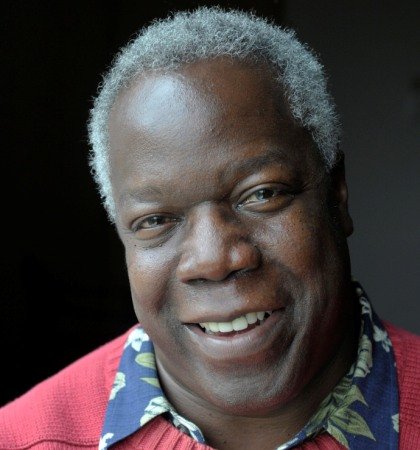If you’re a jazz aficionado with degrees in music education and library science, what could be better than managing the world’s foremost collection of items related to your favorite genre? Nothing, according to Bayonne resident Vincent Pelote, director of operations for the Institute of Jazz Studies, housed at Rutgers University in Newark.
For Pelote, 61, his recent ascension to what he considers his own pinnacle of jazz is nothing short of a dream come true. He has worked at the institute in various posts since the 1970s.
Pelote is a Jersey City native and former Union City resident.
“It’s not just a job, it’s a great place to be,” he said. “This is like a second home.”
Think of what the Hall of Fame in Cooperstown, N.Y., is to baseball, and you will understand what the institute is to jazz, and to Pelote.
Starting small, the institute was founded by Hunter College English professor Marshall Stearns as a library in a Greenwich Village apartment in 1952. But since being relocated to Rutgers in 1966, it has grown to epic proportions, now housing more than 100,000 recordings, 30,000 photos, and 5,000 volumes dating from the early 1900s.
The institute includes a large and comprehensive collection of jazz journals from all over the world, including Denmark, England, France, Germany, and South America.
“Jazz is worldwide, even though it’s an American creation,” Pelote said. “It’s the United States’s contribution to world culture.”
The institute also includes many instruments from jazz musicians, as well as newspaper and magazine archives with clippings of just about every noteworthy article about jazz.
“Our research collection is world renowned,” Pelote said.
The information housed there is so well regarded that when documentarian Ken Burns’s crew researched for his series on jazz they spent close to a year at the institute.
And that’s where Pelote comes in. He oversees day-to-day operations of the institute. That includes archival collections, reference materials and the staff that deals with them, and all books, CDs, LPs, and DVDs.
“Just about anything we need to keep this place viable,” he said.
Pelote is also involved in the planning of the facility’s concert series, roundtables, and guest lectures.
Rutgers’s arts, culture, and media department students use the institute extensively, as do many others.
“We’re here for everybody,” Pelote said. “We serve anybody and everybody.”
Pelote’s interest in jazz was awakened by his father, who liked jazz, and his uncle Lester Pelote, a jazz guitarist.
“He played a mean guitar,” Pelote said. “He was fantastic.”
Uncle Lester gave Pelote lessons and continually encouraged his interest in jazz. Pelote earned an undergraduate degree in music education and a master’s in library science, two degrees that serve him well in his new post.
Bayonne background
Pelote’s new job in Newark is only a few miles away from Bayonne, his adopted hometown.
But Pelote’s city roots run deep, as a child playing in what is now Stephen R. Gregg Park, shopping on Broadway as a teenager, and then student teaching at Bayonne High School.
“I used to say I may one day wind up living here,” Pelote recalls. “It’s a beautiful town. I always liked Bayonne.”
“As I told my wife, if I can’t be a player, this is what I want to do.” – Vincent Pelote
____________
One day in 1994 he and his wife looked at a Roosevelt Terrace house, and that was it. They’ve been here ever since.
Future institute plans
While Pelote never taught music after college, nor had an extensive music performing career, he has no regrets, because he now has the job that fits him best.
“As I told my wife, if I can’t be a player, this is what I want to do,” he said. “This is wonderful.”
His goals include collaborative projects with other institutions in Newark, such as the New Jersey Performing Arts Center, the Newark Museum, and WBGO, the city’s jazz station.
“We want to do more programming, more concerts, and panel discussions,” he said. “Stuff like that. And raise the profile of the institute to reach a broader population. We’re known to the jazz heads, but we want to get known by more.”
Joseph Passantino may be reached at JoePass@hudsonreporter.com.To comment on this story online visit www.hudsonreporter.com.
